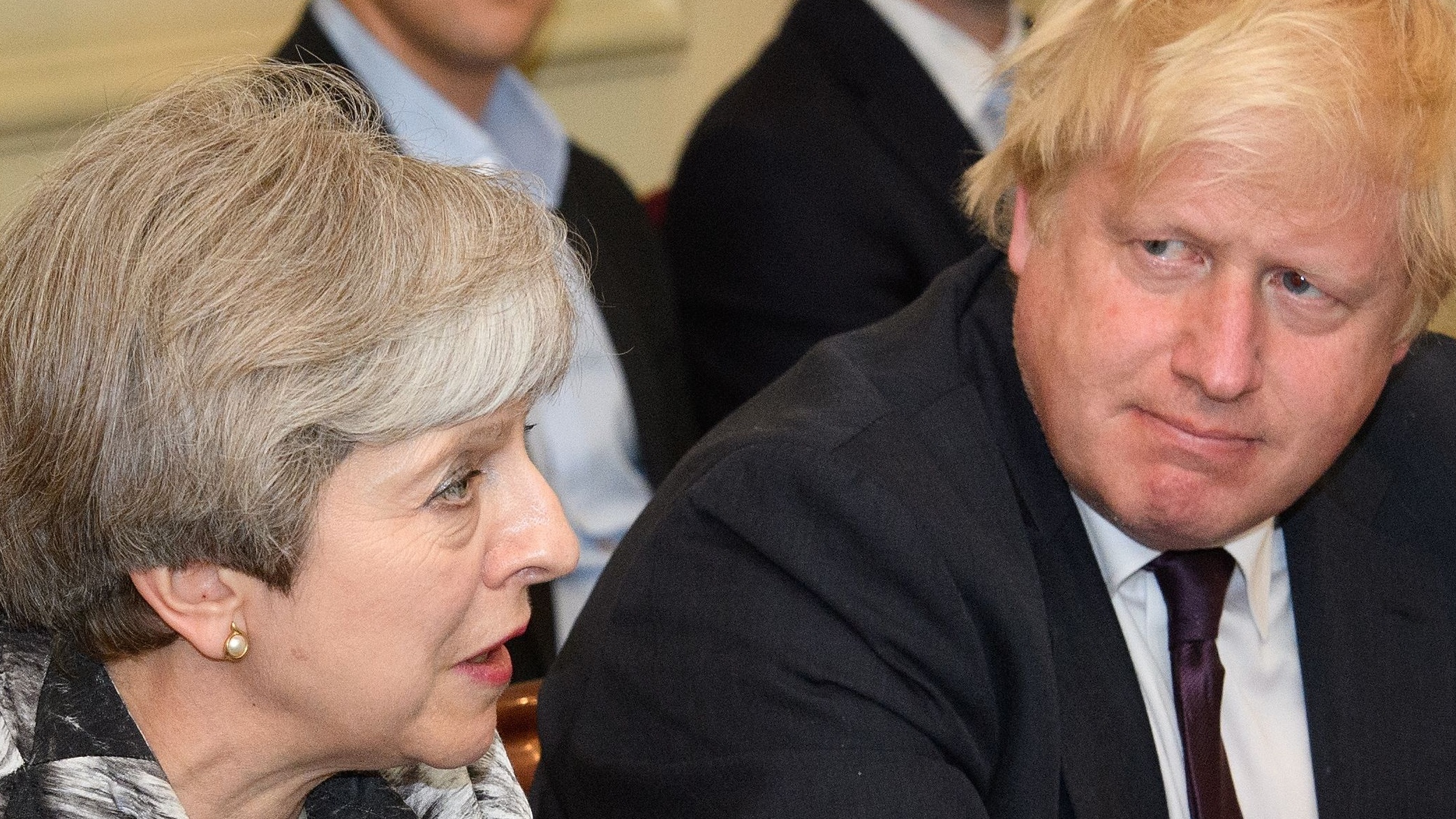Boris Johnson and Theresa May under fire for ‘failing to protect’ civil servants in Brexit wars
New report says both Tory leaders allowed officials to become ‘target for political attacks’

A free daily email with the biggest news stories of the day – and the best features from TheWeek.com
You are now subscribed
Your newsletter sign-up was successful
Theresa May and Boris Johnson let civil servants “hang out to dry” after the service was bombarded with criticism over Brexit, an investigation has found.
Whitehall sources including officials, ministers and special advisers spoke anonymously to the Institute for Government (IfG) in a bid to “shine a light on the behind-the-scenes experience of some of those involved in one of the most controversial chapters in British political history”, says The Guardian.
The independent think-tank’s findings reveal “the difficult decision-making and sheer exhaustion suffered by officials” in the run-up to the first Brexit deadline on 29 March 2019, adds the newspaper, which reports that Whitehall sources “heavily criticised May’s relationship with the civil service”.
The Week
Escape your echo chamber. Get the facts behind the news, plus analysis from multiple perspectives.

Sign up for The Week's Free Newsletters
From our morning news briefing to a weekly Good News Newsletter, get the best of The Week delivered directly to your inbox.
From our morning news briefing to a weekly Good News Newsletter, get the best of The Week delivered directly to your inbox.
May is alleged to have “allowed her chief Europe adviser Sir Olly Robbins ‘to become a target for political attacks’ over her Brexit policy”, says ITV News.
“The prime minister was notably silent,” says the IfG in a newly published report. “She offered no support to her key adviser, who was taking personal and professional attacks as a result of her policy decisions.”
The Guardian says that according to Whitehall insiders, Johnson also used “the weapon of silence” when civil servants came under attack. The think-tank’s report notes that the PM “placed officials in an immensely difficult position by implying that he would break the law to take the UK out of the EU without a deal on 31 October 2019”.
“Excessive secrecy on Brexit” was another complaint. The IfG describes civil servants “huddling round” a single printout of a complicated no-deal tariff schedule because of “anxiety about leaks”.
A free daily email with the biggest news stories of the day – and the best features from TheWeek.com
The report also tells of staff “having to go to dark rooms to access documents on secure computers, and how a generous offer of ‘firebreak’ holiday after the second no-deal deadline on 12 April 2019 led to droves quitting their jobs” rather than face further “Brexit bedlam”, The Guardian adds.
IfG researcher Maddy Thimont Jack said: “Brexit demonstrated the very best of the civil service… But the task is still not complete and the tensions that Brexit exposed - particularly, between ministers and officials - have not necessarily gone away.”
–––––––––––––––––––––––––––––––For a round-up of the most important stories from around the world - and a concise, refreshing and balanced take on the week’s news agenda - try The Week magazine. Start your trial subscription today –––––––––––––––––––––––––––––––
-
 Local elections 2026: where are they and who is expected to win?
Local elections 2026: where are they and who is expected to win?The Explainer Labour is braced for heavy losses and U-turn on postponing some council elections hasn’t helped the party’s prospects
-
 6 of the world’s most accessible destinations
6 of the world’s most accessible destinationsThe Week Recommends Experience all of Berlin, Singapore and Sydney
-
 How the FCC’s ‘equal time’ rule works
How the FCC’s ‘equal time’ rule worksIn the Spotlight The law is at the heart of the Colbert-CBS conflict
-
 Local elections 2026: where are they and who is expected to win?
Local elections 2026: where are they and who is expected to win?The Explainer Labour is braced for heavy losses and U-turn on postponing some council elections hasn’t helped the party’s prospects
-
 How corrupt is the UK?
How corrupt is the UK?The Explainer Decline in standards ‘risks becoming a defining feature of our political culture’ as Britain falls to lowest ever score on global index
-
 The high street: Britain’s next political battleground?
The high street: Britain’s next political battleground?In the Spotlight Mass closure of shops and influx of organised crime are fuelling voter anger, and offer an opening for Reform UK
-
 Biggest political break-ups and make-ups of 2025
Biggest political break-ups and make-ups of 2025The Explainer From Trump and Musk to the UK and the EU, Christmas wouldn’t be Christmas without a round-up of the year’s relationship drama
-
 ‘The menu’s other highlights smack of the surreal’
‘The menu’s other highlights smack of the surreal’Instant Opinion Opinion, comment and editorials of the day
-
 Is a Reform-Tory pact becoming more likely?
Is a Reform-Tory pact becoming more likely?Today’s Big Question Nigel Farage’s party is ahead in the polls but still falls well short of a Commons majority, while Conservatives are still losing MPs to Reform
-
 Asylum hotels: everything you need to know
Asylum hotels: everything you need to knowThe Explainer Using hotels to house asylum seekers has proved extremely unpopular. Why, and what can the government do about it?
-
 Taking the low road: why the SNP is still standing strong
Taking the low road: why the SNP is still standing strongTalking Point Party is on track for a fifth consecutive victory in May’s Holyrood election, despite controversies and plummeting support